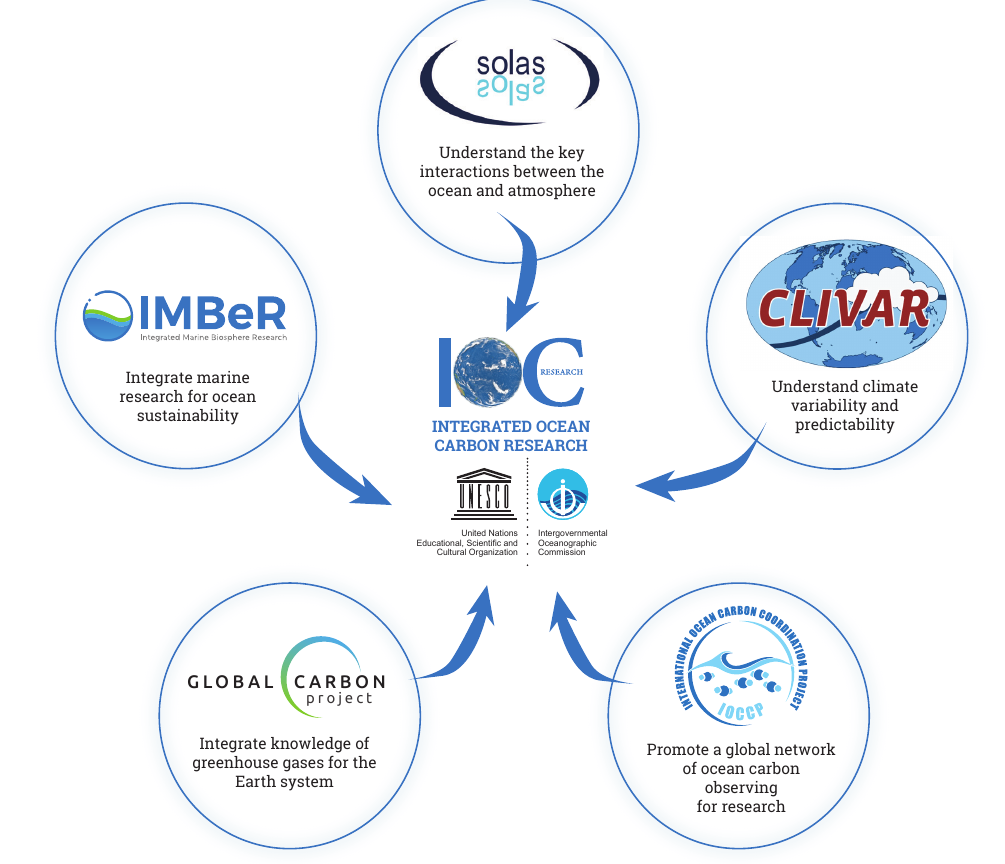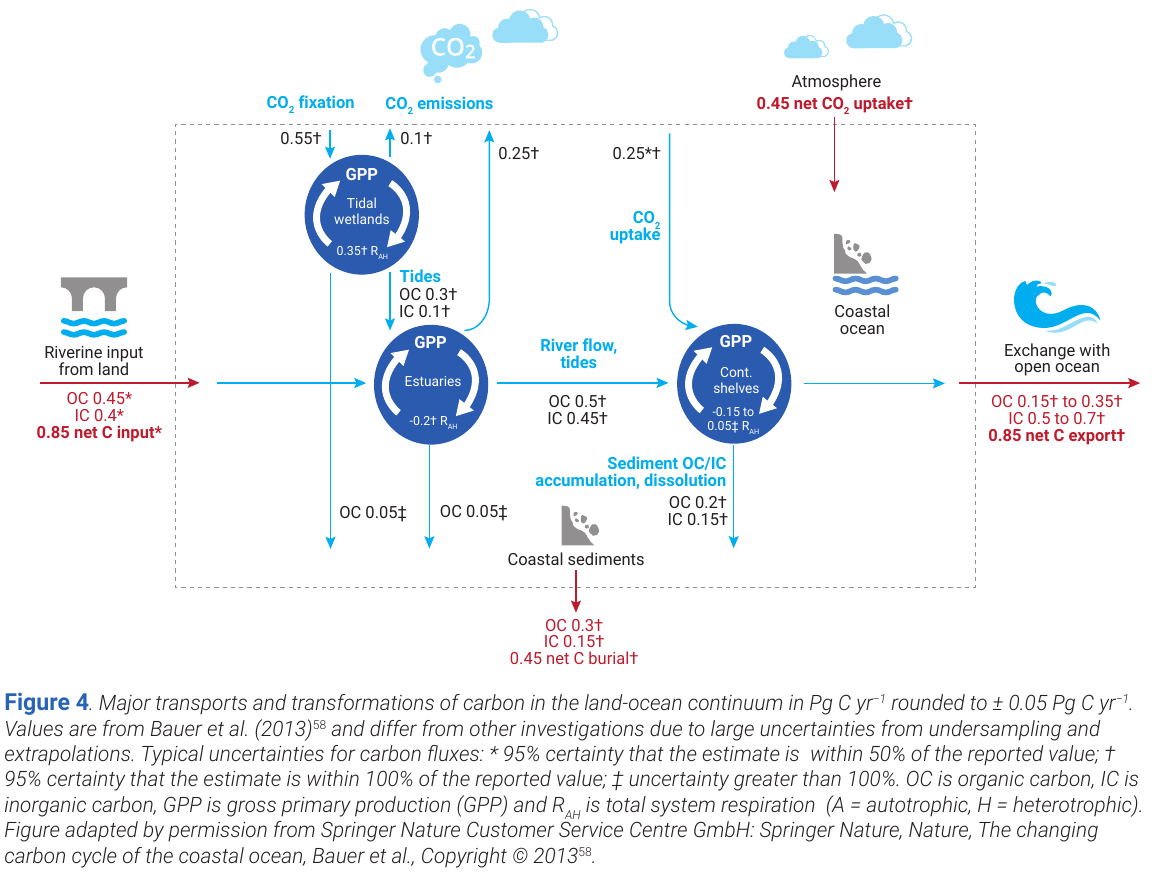We are excited to announce that IOC-UNESCO has just published the "Integrated Ocean Carbon Research: A Summary of Ocean Carbon Knowledge and a Vision for Coordinated Ocean Carbon Research and Observations for the Next Decade", a report which sets out to accomplish the vital task of indicating the current gaps and future directions for the integrated ocean carbon cycle research.

IOCCP was one of the five international research and coordination programmes on ocean-climate interaction, which have been working together since 2018 in the IOC Working Group on Integrated Ocean Carbon Research (IOC-R). The other organizations are: the Integrated Marine Biosphere Research Project (IMBeR), the Surface Ocean Lower Atmosphere Study (SOLAS), the Climate and Ocean Variability, Predictability and Change (CLIVAR) project and the Global Carbon Project (GCP).
The report presents a synthesis of the state of knowledge about the oceans’ role in the carbon cycle and points to the way ahead. Its objective is to provide decision-makers with the knowledge needed to develop climate change mitigation and adaptation policies for the coming decade. It also emphasizes the importance of scientific knowledge to the taking of informed decisions within the United Nations Framework Convention on Climate Change in order to achieve the goals of the Paris Agreement and build more resilient societies. Through continued collaboration amongst IOC-R WG co-conveners, we hope to develop an innovative joint programme of medium- and long-term integrated ocean carbon research to fill the gaps in this field.
Click here to access the official press release of IOC-UNESCO.
In the Appendix A to the report, you will find several detailed research questions and recommendations in support of the integrated ocean carbon research which IOCCP will be considering when planning follow-up actions. These identified gaps in our knowledge are linked to the overarching questions which will be addressed by the IOC-R WG co-conveners:
- Will the ocean uptake of anthropogenic CO2 continue as primarily an abiotic process?
- What is the (changing) role of biology in the ocean carbon cycle?
- What are the exchanges of carbon between the land-ocean-ice continuum and how are they evolving over time?
- How are humans altering the ocean carbon cycle and resulting feedbacks?

You can access the report as PDF HERE.
Please cite the full report as:
Aricò, S., Arrieta, J. M., Bakker, D. C. E., Boyd, P. W., Cotrim da Cunha, L., Chai, F., Dai, M., Gruber, N., Isensee, K., Ishii, M., Jiao, N., Lauvset, S. K., McKinley, G. A., Monteiro, P., Robinson, C., Sabine, C., Sanders, R., Schoo, K. L., Schuster, U., Shutler, J. D., Thomas, H., Wanninkhof, R., Watson, A. J., Bopp, L., Boss, E., Bracco, A., Cai, W., Fay, A., Feely, R. A., Gregor, L., Hauck, J., Heinze, C., Henson, S., Hwang, J., Post, J., Suntharalingam, P., Telszewski, M., Tilbrook, B., Valsala, V. and Rojas Aldana, A. 2021. Integrated Ocean Carbon Research: A Summary of Ocean Carbon Research, and Vision of Coordinated Ocean Carbon Research and Observations for the Next Decade. R. Wanninkhof, C. Sabine and S. Aricò (eds.). Paris, UNESCO. 46 pp. (IOC Technical Series, 158.) doi:10.25607/h0gj-pq41





 Please wait...
Please wait...